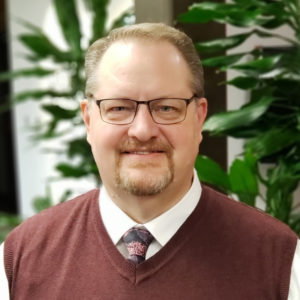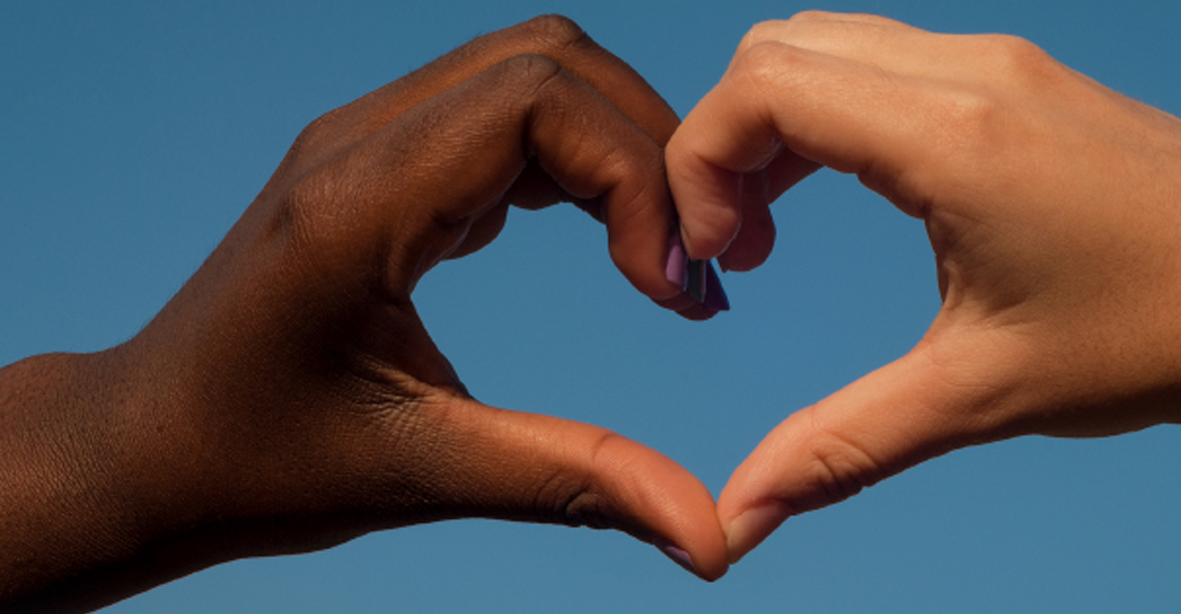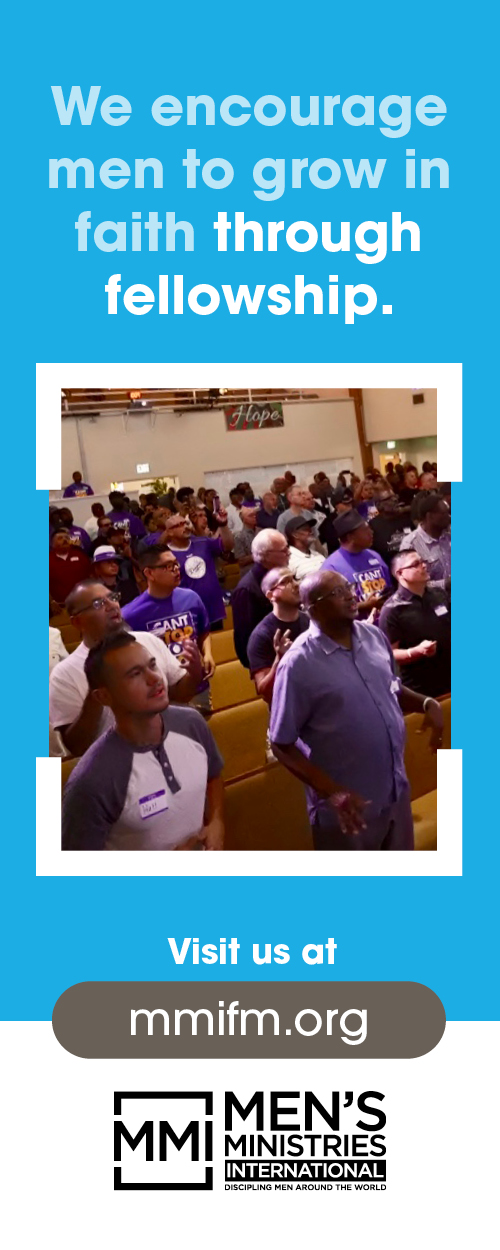
Brett Heintzman
Light + Life Communications Director
Brett Heintzman is the publisher of Light+Life through his role as the communications director of the Free Methodist Church – USA, which he also serves as the co-director of the National Prayer Ministry. Visit freemethodistbooks.com to order his books “Becoming a Person of Prayer,” “Holy People” (Volume 1 of the “Vital” series), “Jericho: Your Journey to Deliverance and Freedom” and “The Crossroads: Asking for the Ancient Paths.”
by Brett Heintzman
We can’t afford to get this “loving others” thing wrong.
It’s time for us who say we live under the authority of Scripture to renew our commitment to biblical love and get our models from the Living Word. But we must be careful to take the entire Word of God into account regarding loving others. If we love as the world loves, then we’ll cheer for some parts of Scripture and scratch our heads at the rest. Many in the church read Scripture and say, “How can a God of love behave that way? I don’t understand.” We don’t understand God’s love in many of His actions because we’re trying to force Him to align with our worldly perceptions. He is love – not the world. He is the standard. Our misunderstandings and misconceptions inform and guide our love for others. To ground our understanding of loving others in Scripture we must view love and grace as one agent, not two.
We are a people who believe in the sanctifying work of God in our lives. This is not separate from His love, nor is it optional. Because God is the agent of this work, His power is all-sufficient to entirely sanctify us, make us completely holy, and free us from willful sin. Yes, to perfect our love for God and others. He’s never changed His mind on this. His Word still declares this. But it’s not doctrine that shapes how we love others; it’s the personal experience of God’s love and grace that shape us, and thereby defines our love and grace for others.
You see, we can only offer what we have. To the degree that we have experienced the working, moving, shaping, redeeming, transforming, active, sharp, convicting, saving and sanctifying love and grace of God, we will yearn for its work in others. When we’ve set foot on the soil of the Promised Land, we want others to join us.
Let’s look at others — whom God loves — and seek to love them with His perfect love. How? Well, here’s a snapshot.
Love chooses.
I choose love for a person; the person never forces my choice. God chooses love for every person — even those who deny Him. Therefore, God-like love is initiated by the choice of the one who loves, not the one who is loved. Choice makes love unconditional, choosing not to love means terms and conditions have been applied. Loving others is a choice of the will you and I must make.
Love wants something.
God’s love and grace come with a desire. This desire is not an add-on or a condition. It’s inextricably woven into His love. It’s to be rescued from sin and reborn and transformed back to the image He can’t get out of His mind — the image of bringing us lovingly to life. God wants for all of us what He envisioned when His hands were forming us in the dust. We don’t remember pre-Eden formation, but He does! He wants us unstained, unharmed, remade, restored, pure, whole and holy — aligned and harmonious with Him. Loving others is an act of prevenient grace with the same yearnings God has for them.
Love moves in.
Choice always precedes movement. Love chooses, right? That means love does not ignore. If I love like God loves, then I can’t restrict or fence in my love. Wherever my mind goes, my thoughts go, my awareness goes — there is love-by-choice. Jesus said He would never leave us nor forsake us, yet He went back to heaven to prepare a place. Love-by-choice moves in and transcends bodily presence because it causes us to act on behalf of the object of our love.
Love sees.
God looked at me before I ever knew Him and saw everything – every flaw and ugly sin-stain — yet He saw more. Redeeming, yearning, envisioning love sees what the human eye misses. Love like God sees deeply and prophetically. It sees the future in the present, cleansing in the filth, wholeness in the brokenness, and flourishing in the pit. Loving others sees others like God sees them.
Love won’t stop until it’s done.
Love works. Grace works. It’s active! Why is the Word of God living and active? Because it’s laced with love. It’s a soft jackhammer, a comforting surgery, a gentle sandblaster for the soul. God’s love for me has chiseled and hammered at my soul with the utmost care and grace. Loving others won’t stop working and wanting for the best in everyone until the work is finished. This kind of love extends into the saving and sanctifying grace of God. He’s not done with us until “It is finished.”
Love will back away.
Wait. Didn’t we say that love moves in? Why would it back away? The great mystery and non-paradoxical paradox of God’s love is that it stays engaged yet allows the choice of others to be. Can you imagine the hurt to the heart of God when Eve and Adam ate the one fruit that God asked them to avoid? Can you imagine the self-restraint of God as He held back from issuing additional warnings? How God must have held His tongue as the serpent lied to them and twisted His truth! Have you known that hurt as the object of your love self-destructed or made bad choices? Physical distance — backing away from the object of our love — doesn’t signify removal of our love. At times it’s the most difficult and hurtful thing to do. Backing away does not remove our choice to love another — it acknowledges the choice of the other. Love your enemies. That’s what this means.
Love will wait.
Love is patient. Loving others requires patience. God’s love for you and me requires His longsuffering. Waiting patiently while seeing what can be in another is not easy-peasy love. Yearning in the waiting — and doing it by choice — that’s God’s kind of love for others and the love we are to mirror for others.
Love won’t compromise self.
Because the Living Word has become life in me, I can’t go backward for the sake of “love.” What is woven into the fabric of God is woven into me and I will never forsake that even though someone may forsake me. “Love God” is first. “Love others” is bound to that first love — but loving God is my first love. We, like our Father, will be accused of not loving others if we refuse to join them in their practices and culture of sin. We may be in their proximity, but far from their position — in their presence, but not their posture. Loving others means we really, authentically, heart-wrenchingly love them even amid accusation of not loving. When we are challenged to call evil good and good evil, we will lovingly speak the truth. Jesus was accused of being a heretic when He was the embodiment of pure love. They hate — we love. We stand firm but not arrogant, strong but not boisterous.
Let’s get this loving others thing right. At least as best as we can right now.
Begin by refusing any worldly definition of what it means to love others. Embrace the whole of Scripture and see love at work in prevenient, saving and sanctifying grace. Welcome that kind of working love into your own life as a basis for how you love others. Choose to love before someone knows you love them. Cry over a wayward object of your love. Pursue the best in all.
So be it?
Yes, so be it!
Amen. +

Brett Heintzman
Light + Life Communications Director
Brett Heintzman is the publisher of Light+Life through his role as the communications director of the Free Methodist Church – USA, which he also serves as the co-director of the National Prayer Ministry. Visit freemethodistbooks.com to order his books “Becoming a Person of Prayer,” “Holy People” (Volume 1 of the “Vital” series), “Jericho: Your Journey to Deliverance and Freedom” and “The Crossroads: Asking for the Ancient Paths.”









